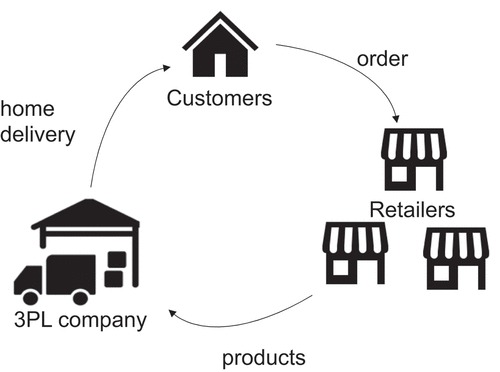In the dynamic landscape of Texas business, energy costs can quietly stand out as one of your most significant and often overlooked operational expenses. Whether you’re running a bustling restaurant in Houston, a law firm in Dallas, or managing a manufacturing line in Austin, the way you approach your electricity contract can leave a sizable mark on your bottom line. In this article, we explore how to secure smart and strategic commercial electricity deals, specifically within the Texas marketplace, giving you the clarity and confidence needed to make informed decisions.
Why commercial electricity deals matter
Electricity isn’t just a utility cost it’s a strategic input. For a business, every cent you save per kilowatt hour (kWh) adds up, especially when you’re operating many hours, running heavy equipment, or managing multiple locations. In Texas, the deregulated electricity market means businesses have choice if they know how to use it.
According to industry data, the average business electricity rate in Texas is approximately 8.5 cents per kWh. Another source lists a slightly lower average around 8.15 cents per kWh for commercial customers.For context, that is appreciably lower than the national average for business electricity rates.
These figures show the potential value of putting effort into your electricity contract: if you can secure a rate even a few cents below average, especially for larger consumption profiles the savings can accumulate quickly.
Understanding the Texas market for business electricity
Deregulation and choice
The Texas electricity market is unique. It was deregulated through legislation passed in the late 1990s, which allowed many retail electric providers (REPs) to compete for customers rather than relying solely on a local utility monopoly.For businesses, that means more options but also more complexity.
Commercial vs. residential deals
Business electricity deals differ from residential in important ways:
What to watch out for
When evaluating commercial electricity deals, some of the most important areas to review include:
How to evaluate and secure the best commercial electricity deals
Here’s a step‑by‑step guide for businesses looking to leverage competitive electricity deals in Texas:
Step 1: Gather your usage data
Before you sign any deal, you must understand your business’s usage patterns: monthly kWh, highest demand hours, off‑peak vs peak usage, and seasonal fluctuations. With this in hand, you’ll be equipped to evaluate proposals properly.
Step 2: Define your business’s tolerance for risk
Are you comfortable with variability in the rate (for perhaps lower initial cost) or do you prefer the predictability of a fixed‑rate contract? For many businesses, locking in avoids surprise cost hikes that can disrupt budgeting.
Step 3: Solicit offers and compare apples‑to‑apples
Using your usage data, you can shop multiple REPs. Make sure you compare the true “all‑in” cost not just the headline rate. Look at term length, any pass‑throughs, demand charges, and the contract end terms. In Texas, online comparison tools exist for residential and some smaller business customers, but for larger or more complex operations, you may need a broker or consultant.
read more : Swaminathan Anantharaman
Step 4: Negotiate and lock in the deal
With your usage profile defined and options compared, you can negotiate. For businesses with larger consumption (for example, monthly bills over $2,500 or multiple meters) you may be able to access custom pricing or special terms. Once you decide, lock the contract. Consider starting early shopping before the renewal window opens may avoid premium rates that appear due to seasonal demand spikes.
Step 5: Manage and review regularly
Your contract is not “set and forget.” Market conditions change, your load may change (business grows or shrinks, operations change), and new technology (such as energy efficiency upgrades, solar additions) may alter your requirement. Be ready to revisit your plan and ensure you’re still getting a competitive commercial electricity deal.
Real‑world considerations: Putting it into practice
Imagine a mid‑sized manufacturing business based in the Dallas–Fort Worth area. Its monthly electricity bill hovers around $6,000. Over the years, it has signed rolling renewals and not paid close attention. One year, it finds itself facing double‑digit rate hikes just as economic pressures rise.
The business reassesses:
This scenario is very real for many businesses in Texas because when structured properly, a thoughtful commercial electricity deal becomes a strategic advantage, not just a line item cost.
Sustainability and future‑proofing your deal
In today’s business environment, electricity contracts are not just about price they’re also about how your procurement aligns with your broader strategic objectives. If your company has goals around carbon reduction, you may want a plan that includes renewable energy credits (RECs) or sources from wind/solar. The Texas market supports these options.
Also, look at future‑proofing: as electrification increases (for example, EV charging, process digitization), your consumption profile may change. Negotiating enough flexibility or at least understanding how your rate deal handles future load growth can prevent being locked into an inflexible contract that doesn’t perform when your business evolves.
Common pitfalls and how to avoid them
Why using a broker or energy consultant can help
For many businesses especially those with multi‑site operations or unusual load profiles working with an experienced energy broker or consultant can make a marked difference. These experts:
If you’re working with a firm such as the one at the target website, you’re taking a proactive stance in your energy procurement, which can pay dividends.
Looking ahead: The bottom line
Securing the right commercial electricity deal is more than just “getting a low rate.” It’s about aligning your energy procurement with your business’s operational patterns, growth trajectory, budget expectations, risk tolerance, and sustainability goals. In Texas where choice and competition exist for many businesses you have the opportunity to turn electricity from a cost‑center to a managed expense with strategic advantage.
When you examine your business’s full electricity usage data, understand the types of contract structures, compare multiple offers, and stay alert to future changes in both energy consumption and market conditions, you begin to make decisions that can free up cash, stabilize your bottom line, and support your long‑term planning.
In short: by treating electricity not as a utility afterthought but as a strategic resource, your business can unlock meaningful savings and operational clarity. With a well‑constructed deal behind you, you’re free to power growth, innovation, and success without being blindsided by the next unexpected rate spike or hidden charge.







